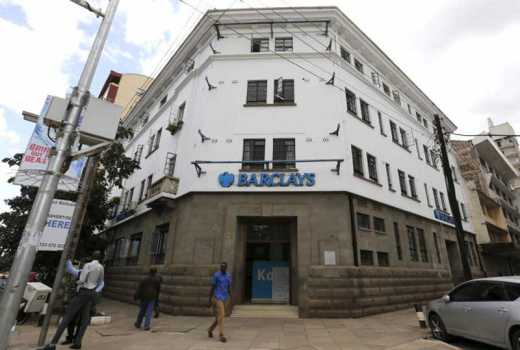When the London based Barclays Plc that owned over 60 per cent of Barclays Africa group decided to leave the continent, there was confusion at the local subsidiary. Barclays Bank of Kenya (BBK) Chief Executive Jeremy Awori refuted exit claims, only for it to materialise and unravel a few months later.
When Barclays Africa Group settled on ABSA Africa group as the new name, Awori was preparing to release the Kenyan unit’s results. The new name came as a surprise. It stole the thunder from the event. As Barclays rebrands, many are wondering what will really change.
Will BBK continue to be treated as ‘flower girls’ – the way Central Bank of Kenya Dr Patrick Njoroge put it or will it fundamentally change how the lender operates and relates with its parent bank?
According to Barclays Kenya boss, the change of name and brand from the blue eagle to the red ABSA, initials of the Amalgamated Banks of South Africa has not affected customers’ affection for it.
“The assumption is that it has been resisted but actually the reality was neutral or positive. In South Africa and the Southern markets of course ABSA is a Sh700 billion ($7 billion) brand with higher affinity to those countries. The outcome is that we will probably be called ABSA Kenya Limited,” Awori said.
A market analyst from a pan-African advisory firm however says that Barclays Bank will do more to retain its customers as one of the biggest lenders to change its names in recent history.
“There will be serious branding and marketing campaigns to ensure that ABSA will be synonymous with Barclays from service delivery, quality of service, emotional connection with the new brand over the next three years, so there will be minimal risks,” the source from the advisory firm said.
Holding company
The biggest challenge for the bank are timelines. Barclays has to change the brand in the next two years – a process that has begun in the holding company in South Africa which in June will move to change name.
It will then need to address concerns of its customers who for a long time have been large corporates, and elite clients with limited inroads in the mass market.
Renaldo D’Souza a research analyst at Sterling Investment Bank says this potent key risk for the lender, considering that some business were based on the Barclays Plc reputation.
Exit of Plc give Barclays the opportunity to handle more investments and offer more products while cutting down the red tape that characterised the global parent. “As to whether the bank will be able to take up more risk, it is too soon to tell at this point. We will be keen to see whether there will be a divergence from past policies on risk management,” D’Souza said. “We however think the bank could be better positioned now than before to have a better understanding of the dynamics of the markets they operate in, and be responsive to any developments affecting their business.”
Barclays Africa Group chief economist Jeff Gable for the first time came to Kenya to offer debt insights and outlook in the economy last month something they could not previously do. Mr Gable said they will be able to engage clients and the public with more debt research given that under Plc they were not allowed to share some of this information.
